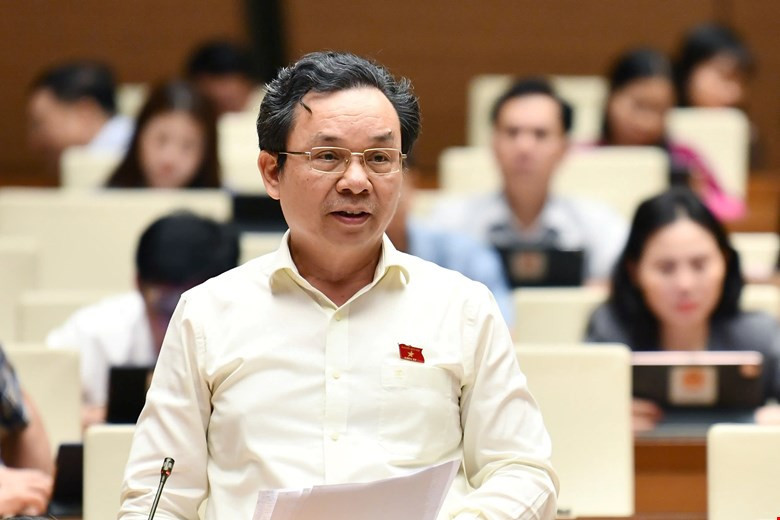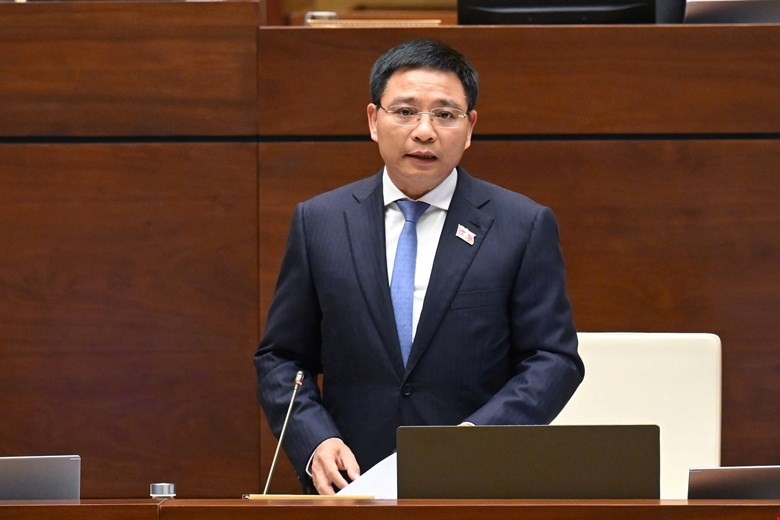Although a latecomer to the global financial hub race, Vietnam is positioning itself for a breakthrough thanks to its regulatory edge in digital finance, digital assets, and FinTech - sectors where traditional financial centers have yet to fully explore.
Vietnam's institutional advantage

On June 12, the National Assembly discussed a draft resolution on establishing international financial centers (IFCs) in Vietnam. Lawmakers noted that while major IFCs like London, New York, Singapore, and Dubai have long-established frameworks, Vietnam can differentiate itself by embracing innovation and global best practices from the outset.
These global hubs operate under specialized governance systems, separate from national regulations, and resolve disputes through international courts or arbitration, applying international law.
To attract global investors, Vietnam must demonstrate a regulatory framework that rivals or surpasses those of existing centers. Deputy Hoang Van Cuong stressed that Vietnam’s IFC must apply a liberal, internationally-oriented legal system, at least equivalent to the Dubai International Financial Centre or Kazakhstan’s Astana International Financial Centre. Participants should have the option to use foreign law based on mutual agreement.
The IFC’s management body should be authorized to issue operational rules that may diverge from current Vietnamese law, as long as they conform to international standards. These rules would only apply to center participants, so nationwide regulatory procedures would not be necessary.
Cuong proposed that the Prime Minister directly sign and take responsibility for these regulations, as well as oversee both the executive and supervisory bodies of the financial center.
Despite entering the scene late, Vietnam’s advantages in digital finance, digital assets, and FinTech applications present a unique opportunity. Unlike traditional centers, Vietnam can create an open, pioneering, and stable ecosystem tailored to these innovations.
Clear roles, streamlined oversight

The draft outlines a supervisory structure involving the Ministry of Finance, the State Bank of Vietnam, and other ministries coordinating with the center’s management and supervisory bodies. However, several lawmakers raised concerns about overlapping responsibilities and inefficiency.
Deputy Ha Sy Dong (Quang Tri) called for clarifying the roles of central agencies and the center’s management to prevent confusion and fragmented authority. He proposed granting more autonomy to the executive body, allowing it to issue specific administrative procedures without waiting for subordinate legal documents.
To ensure transparency and strategic investment, Dong suggested assigning a central oversight committee led directly by the Prime Minister.
Global consultation and pioneering policies
Finance Minister Nguyen Van Thang said that before submitting the draft to the National Assembly, the drafting committee had consulted with domestic and international experts and investors.
He revealed that the draft includes land and insurance regulations more advanced than those in some of the world’s top financial centers. Several policies, including those on foreign exchange and dispute resolution, will follow a phased, controlled opening.
The Politburo has approved establishing two international financial centers: one in Ho Chi Minh City and the other in Da Nang, leveraging each city’s strengths and distinct characteristics.
The HCMC IFC will focus on capital markets, banking, monetary markets, FinTech innovation, dedicated financial exchanges, capital trading platforms, commodity and derivatives trading, regional supply chain services, and logistics.
Da Nang’s regional financial center will prioritize green finance, trade finance, support for SMEs, innovation, and cross-border financial activities linked to its free trade zone. It will also pilot regulated models such as digital assets and digital currencies while attracting investment funds and startups offering services in tourism, trade, and logistics.
Risk management and legal mechanisms
Minister Thang agreed on the need to strengthen the supervisory body’s capacity and introduce a command structure with the Prime Minister at the helm.
Building a financial center is unprecedented in Vietnam, and the risks of capital flight or exchange rate manipulation must be anticipated. The minister emphasized strict monitoring of capital flows, comprehensive reporting requirements, limitations on short-term lending, and incentives for medium- and long-term loans.
He added that risks like asset bubbles, speculation, and carbon credit market manipulation have been considered, with corresponding oversight mechanisms in place.
Regarding legal frameworks, Vietnam will adopt a model used by leading global IFCs, establishing specialized courts or international arbitration within the center and using case law precedents.
Tuan Nguyen